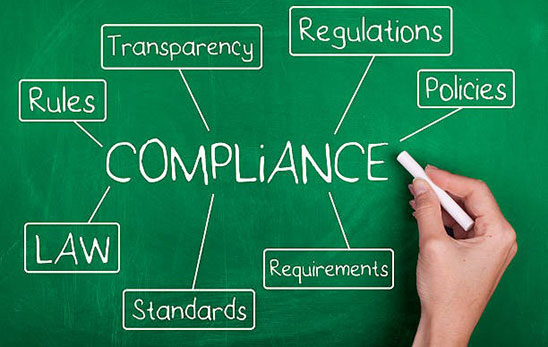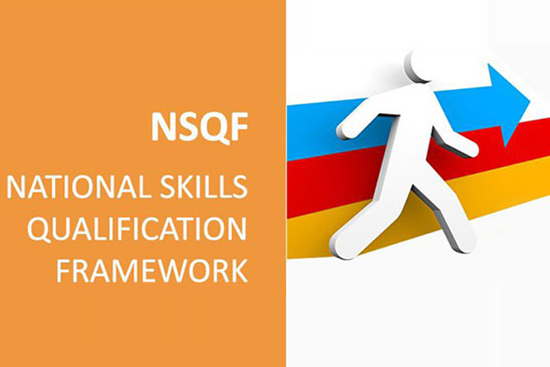A Comprehensive Guide on National Skills Qualification Framework (NSQF)
Get Your Free Trial Now!
National Skills Qualification Framework (NSQF)
In the continually changing and lively climate of schooling and labour force improvement, the National Skills Qualification Framework (NSQF) was laid out as a basic system that makes it conceivable to normalize ability advancement in different areas by carrying out a solitary arrangement of guidelines and benchmarks.
As an ever-increasing number of nations attempt to raise the capacity of their workforce for the market, an unmistakable understanding of the NSQF becomes essential. We will look into the National Skills Qualification Framework (NSQF). This involves conducting a gap analysis to identify areas needing improvement. It is going to be a unique and quality guide

Understanding NSQF

The National Skills Qualifications Framework is a competency-based framework where qualifications are organized as a system of levels according to the level of basic to advanced skills. Its major aim is to make one the same for the many varied skill development initiatives provided by several sectors.
Through NSQF, a preparatory stage that connects education, training, and employment is established, thus ensuring that individuals have the required skills to satisfy market needs.
Read Also : Gap Analysis Techniques
Levels of NSQF
The NSQF is actually based on the categories of qualifications, which in turn represent a specific skill set and educational attainment at ten levels. These levels are an instrument to help ease an individual’s skill development journey.
Let's explore each level in detail:Let's explore each level in detail:
Level 1 - Foundation Skills: This level is entirely dedicated to the acquisition of basic skills and foundational knowledge, which forms a good conceptual foundation for entry-level positions.
Level 2 - Functional Skills: Individuals become more focused on specific skills that are relevant to their respective lines of work.
Level 3 - Competency (Competence): At this level, one demonstrates a certain level of competency in a particular job position or specific profession.
Level 4 - High Competence: The individuals at this stage possess advanced skills and suitable professional knowledge that qualifies them for supervisory and managerial roles.
Level 5 - Tooling Up: At this level, the development of leadership-required skills and knowledge is put on the line.
Level 6 - Senior High-Skills: People at this level are experienced in practices of high demand, which enables them to make strategic and important decisions.
Level 7 - Bachelor's Degree: This degree level is equivalent to a bachelor's, which combines theoretical knowledge with practice.
Level 8 - Graduate Phase: It is here that an individual picks up advanced knowledge and research skills in the designated area.
Level 9: PhD, this is the highest academic level. It signifies complete and comprehensive mastery of both knowledge and research skills.
Level 10 - Advanced Research: This is the highest level that involves individuals who are scientists and some involved in research and innovation to come up with applied innovations.
Significance of NSQF

Alignment of education and training to the demands of industries is a vital tool, which is NSQF. A standardized process offers an avenue for employers to evaluate the competencies of the candidates and authenticate them. This, in turn, leads to a more smart and effective hiring system.
Furthermore, NSQF stimulates learning for the whole life by providing such opportunities for individuals at different stages of their careers as clear progression pathways.
Integration of the NSQF into Education
The fundamental benefit of NSQF is that it tends to be effortlessly coordinated into various sorts of schooling systems. NSQF can be utilized by schools, universities, and professional preparation organizations to assist with spanning the ability gap that exists between industry assumptions and the result of instruction and preparing foundations.
This integration ensures that students become employable by the time they graduate with all the necessary job skill sets.

What Are Challenges and Solutions

Even though NSQF is an important component, its execution is also associated with several issues. A high awareness and comprehension of the NSQF among educators, employers, and students form the crux of the issue.
Governments and education stakeholders must, however, work together to create awareness campaigns; these campaigns must highlight the benefits of NSQF and the actualization of a skilled workforce through its framework.
Don’t Miss Out : New Education Policy 2020(NEP 2020): Everything You Need To Know
Conclusions about National Skills Qualification Framework (NSQF)
Thus, the NSQF is the basis of skill development and the education system. It's one of the features that`s based on the structured way of categorizing qualifications into levels, which leads to the systematic improvement of skills for people seeking to get their skills enhanced. In the face of an ever-shifting job market, NSQF rises up as a light, calling nations to invest in human capital and acquire skills as the currency for success.
Adopting and utilizing NSQF should be viewed not as an option but as a necessity if you are in the process of building this globally skilled and empowered workforce.

FAQs about National Skills Qualification Framework (NSQF)
By what means does NSQF fill the gap between education, training, and employability?
The NSQF organizes qualifications into ten different levels with a scheme of basic, intermediate, and advanced skills. This principle of graduated development helps arrive at a situation where the theoretical and practical aspects of education and training are aligned with the needs of the industry and the individuals finally become job-ready.
What do NSQF levels indicate, and how many of them are there?
NSQF is at the tenth level. The initial modules (levels 1 to 3) concentrate on basic and more functional skills.
- • Significantly, Levels 4 to 6 classify people as competent, advanced, and skilled.
- • The abbreviation L 7-9 signifies degrees: bachelors, masters, and doctoral.
- • This is level 10, marked as advanced research designed for influential contributions in the areas of research and development.